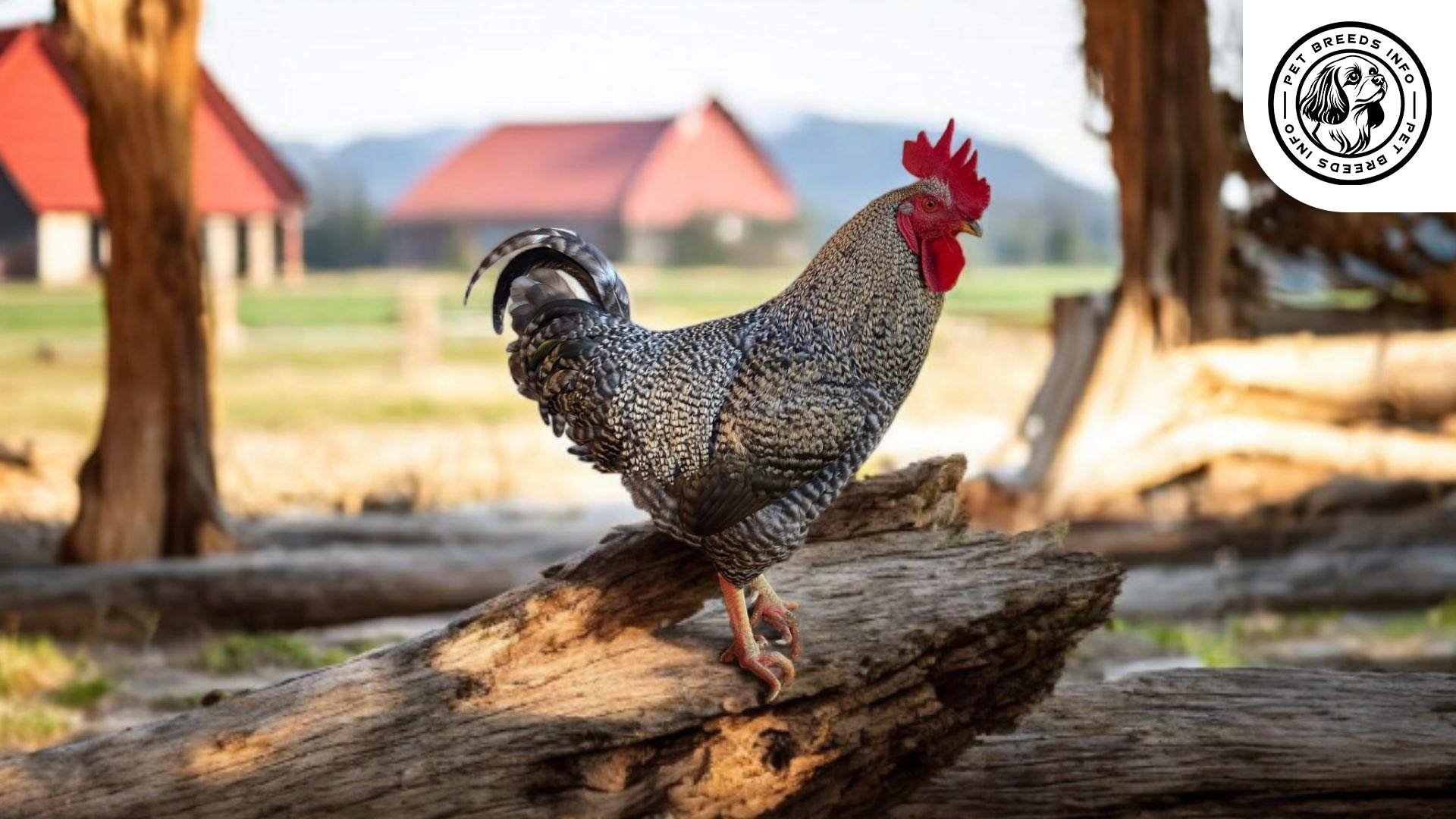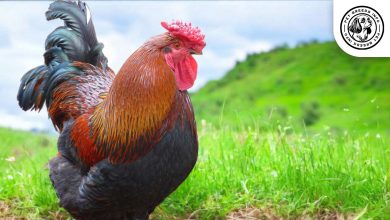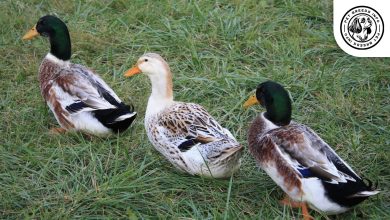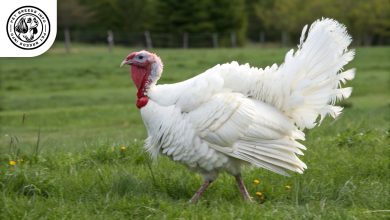Plymouth Rock Chicken Breed: Personality, Lifespan & Care
General Introduction of the Breed
The Plymouth Rock Chicken, also known as the Barred Rock, is a popular breed originating from the United States. It was first developed in the 19th century in Massachusetts, where breeders aimed to create a hardy, dual-purpose chicken suitable for both meat and egg production. Over time, it became a favorite among poultry keepers for its adaptability and productive nature.
Table of Contents
| Common Name | Plymouth Rock Chicken |
| Scientific Name | Gallus gallus domesticus |
| Origin | United States (Massachusetts) |
| Size | Medium to large; roosters: 7.5–9.5 lbs, hens: 6.5–7.5 lbs |
| Lifespan | 6–10 years |
| Colors | Barred, white, buff, blue, silver penciled, partridge, Columbian |
| Talking Ability | None (non-talking species) |
| Noise Level | Moderate; generally quiet but alert |
| Social Behavior | Friendly, docile, social with humans and other birds |
Physical Characteristics
Plymouth Rock Chickens are medium to large-sized birds. Roosters generally weigh around 7.5 to 9.5 pounds (3.4 to 4.3 kg), while hens weigh around 6.5 to 7.5 pounds (2.9 to 3.4 kg). They have strong, well-rounded bodies with prominent feathers.
Their plumage is dense and soft, with colors including barred, white, buff, silver penciled, partridge, Columbian, and blue variations. The most common is the Barred Rock, featuring black and white striped feathers.
They have bright yellow eyes that contrast with their red comb and wattles. Their beak is also yellow, and they have clean, strong legs without feathering. The tail is moderately long and held slightly upright.
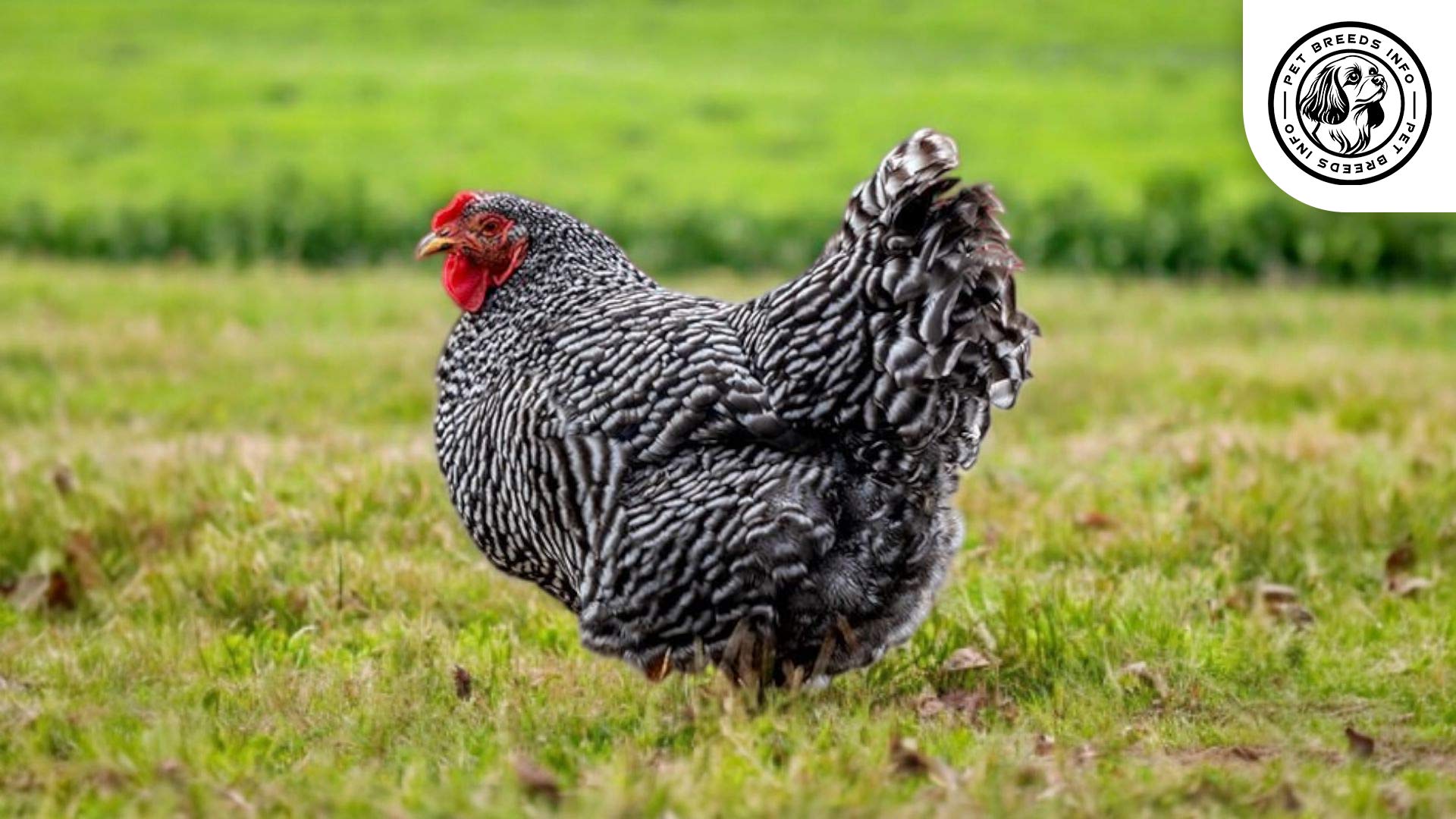
Personality and Temperament
Plymouth Rock Chickens are known for their friendly and calm temperament, making them an excellent choice for backyard poultry keepers. They are intelligent and can quickly learn routines, responding well to human interactions.
These chickens have moderate energy levels. They enjoy foraging and roaming in spacious environments but can also adapt well to confinement.
They are highly social birds that get along well with humans, children, and other poultry members. They do not exhibit aggressive behaviors and can often be handled easily, making them ideal for small farms and families.
Care and Maintenance Requirements
These chickens require moderate exercise, ideally in a free-ranging environment where they can forage for food. However, they can also be kept in a well-structured coop with enough space to move around.
They thrive in both rural and urban backyard settings but require proper ventilation in coops. They can tolerate cold weather well but need extra protection during extreme heat.
Plymouth Rocks have low grooming needs since their feathers do not require much maintenance. However, regular dust baths help them stay clean and prevent parasites.
Read More: Pekin Bantam Chicken
Routine care includes keeping their coop clean, providing fresh bedding, trimming nails if necessary, and checking for mites or lice.
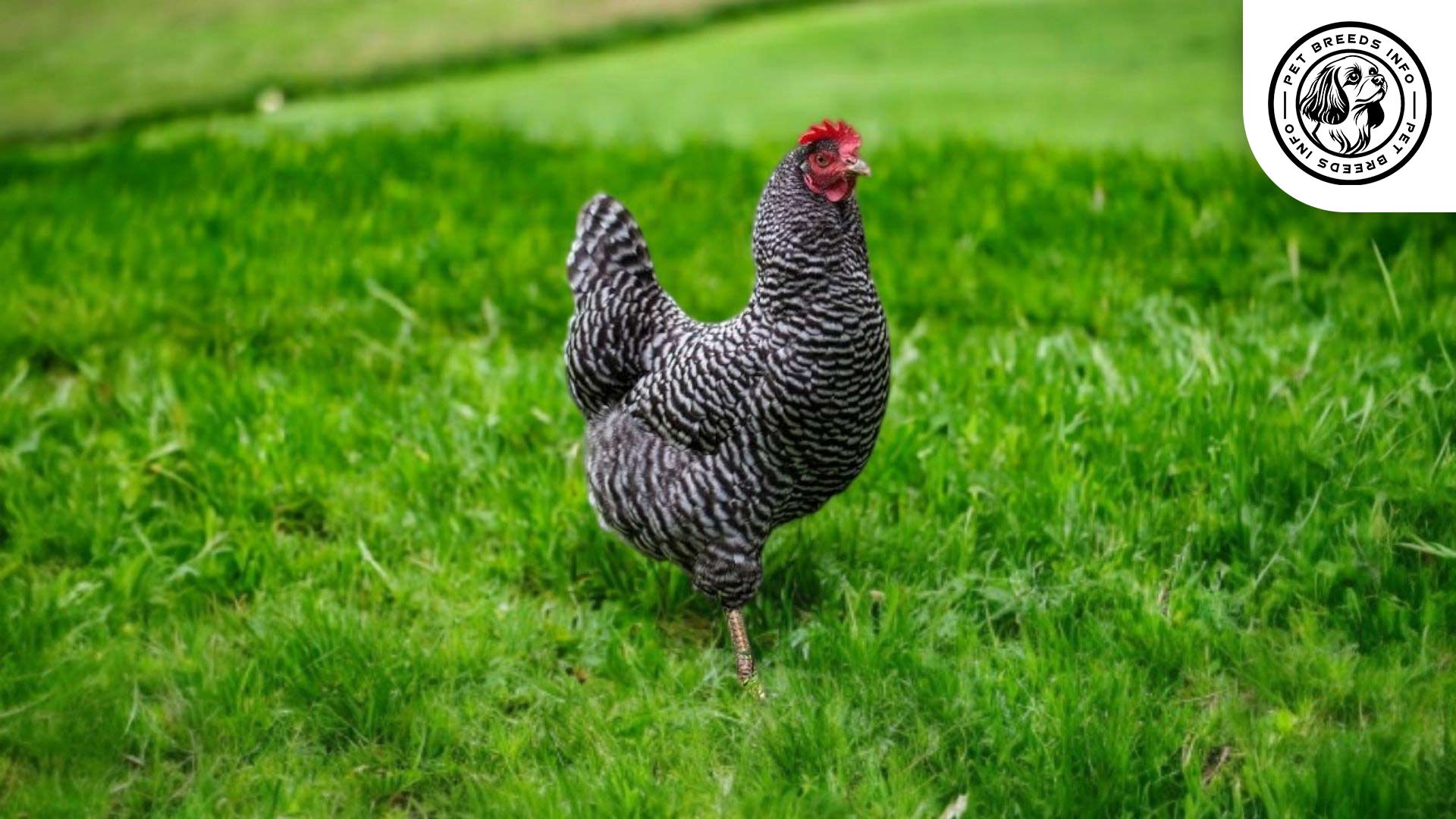
Diet and Nutrition
Plymouth Rocks should be fed a balanced diet of high-quality commercial poultry feed containing essential nutrients such as protein, calcium, and vitamins.
They enjoy natural treats like grains, vegetables, and mealworms but should be given in moderation to avoid dietary imbalances.
Foods to avoid include chocolate, caffeine, salty foods, and raw beans, as these can be toxic to chickens.
Adult chickens typically require around ¼ pound (0.11 kg) of feed per day, along with constant access to fresh water.
Health and Common Medical Issues
Plymouth Rock Chickens are generally hardy birds, but they may be prone to common poultry diseases such as coccidiosis, respiratory infections, and parasites.
Regular health checks, vaccinations, and deworming can help maintain their well-being.
The average lifespan of a Plymouth Rock Chicken is around 6 to 10 years, with proper care contributing to longevity.
Read More: Pin-tailed Whydah Bird
Training and Behavior Management
Plymouth Rocks are easy to handle and train compared to other chicken breeds. They can learn to follow feeding schedules, recognize owners, and even respond to calls.
Socialization from an early stage helps develop a friendly demeanor. They can be conditioned to return to their coop at sunset when properly trained.
Interaction with Other Animals and Humans
This breed is very social and enjoys human attention. They are known for their docile nature, making them an excellent choice for families with children.
They get along well with other chickens and livestock but should be introduced carefully to new members of the flock to prevent pecking order disputes.
They are suitable for both individual poultry keepers and families who want friendly, productive chickens.
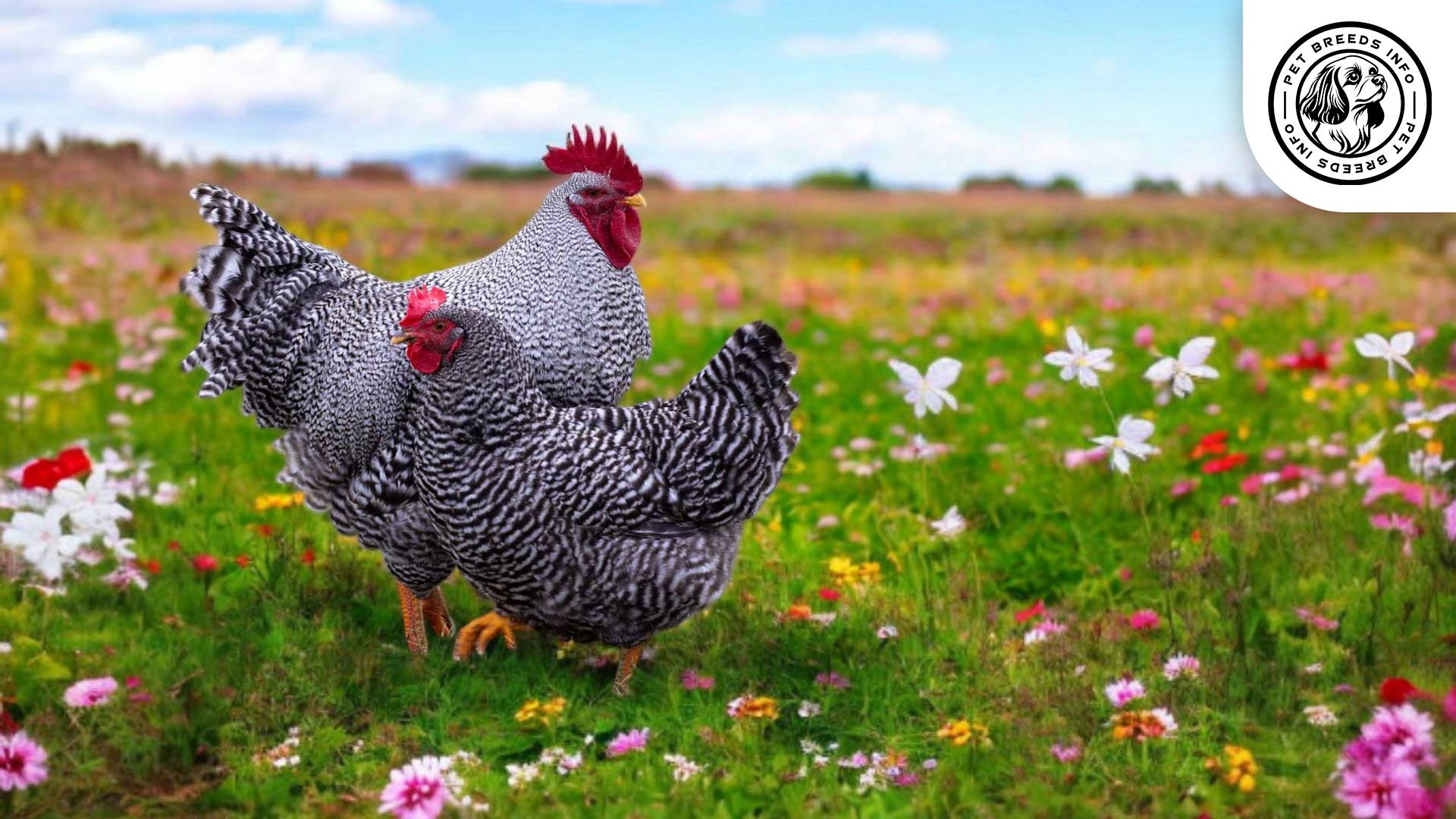
Price and Availability
The price for Plymouth Rock Chickens varies based on age, gender, and region. Chicks usually cost between $3 to $5 per bird, while adult chickens can range from $15 to $50 or more.
It is advisable to purchase from reputable breeders or hatcheries that prioritize healthy, well-bred poultry. Poultry farms and online hatcheries often have availability.
Conclusion and Final Thoughts
Plymouth Rock Chickens are an excellent choice for both beginner and experienced poultry keepers due to their hardy nature, friendly temperament, and high egg production.
Read More: Plum-crowned Pionus Bird
They thrive in various environments, including backyard coops and free-range settings. Their low maintenance needs and good health make them a practical and rewarding breed to raise.
Potential owners should ensure they provide proper shelter, a balanced diet, and routine healthcare to keep these birds healthy.
If you’re looking for a friendly, productive, and adaptable chicken breed, the Plymouth Rock is a great option to consider.
FAQ
Are Plymouth Rock Chickens good for beginners?
Yes, they are low-maintenance, friendly, and easy to manage, making them ideal for first-time poultry keepers.
How many eggs do they lay?
They are productive layers, producing around 200–280 brown eggs per year.
Can they tolerate cold weather?
Yes, they are cold-hardy but should be protected from extreme heat.
Do they need a lot of space?
They enjoy free-ranging but can also adapt well to coops with enough room to move.
Are they safe around children?
Absolutely. Their gentle, calm demeanor makes them a favorite for family settings.
